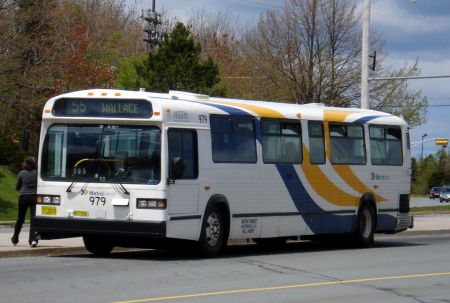KJIPUKTUK) HALIFAX - Community Services is making a concerted effort to reduce the number of bus passes it provides to Income Assistance recipients.
That's what anti poverty advocates and social workers tell the Halifax Media Co-op.
Evan Coole, who works for Dalhousie Legal Aid, hears about people's bus pass being taken away and new requests being denied all the time.
Often people are told that they need at least twelve medical appointments within a month to qualify for a bus pass, he says.
That's a lot of appointments.
Paul O'Hara, a social worker with the North End Community Health Centre, sees the same thing.
“You have to justify, typically through medical documentation, that you need a bus pass,” he explains. “If you go to your doctor five times a month they will give you money for bus tickets instead.”
It's not a new phenomenon but it seems to happen more frequently lately, these advocates believe.
The Department of Community Services says nothing has changed.
“In HRM clients who require transportation for medical appointments or employment/training-related activities may be provided a bus pass if the travel is frequent enough to merit a bus pass, which costs $78 per month,” Lori Errington, spokesperson for the Department, writes to the Halifax Media Co-op.
“For clients with infrequent appointments, money to purchase bus tickets (or taxi fare) can be the most economical option,” Errington writes.
Yet social justice advocates we talked to argue that what they see happening on the ground reflects a deliberate choice by the department.
A choice that they believe is driven by spending constraints and the overall austerity agenda.
Departmental regulations indeed require that the most economical option be chosen when it comes to supporting transportation needs, these social workers say.
But nowhere does it define what that means in practical terms, nor does it prescribe in concrete terms the type of evidence that must be provided in order to approve a request.
In other words, there is enough wriggle room for the department to be compassionate, if it so chooses.
The process to determine whether a request for a bus pass, or any “special need” for that matter, is justified, is a source of frustration for all social workers and advocates we talked to.
The department often relies on its anonymous internal experts to justify its denials, says Fiona Traynor, who as a Dalhousie Legal Aid worker over the years has appealed many special needs decisions.
Meanwhile, the type of evidence required to justify an approval often is exhaustive, say social workers.
Community Services staff often lack the sophisticated medical expertise to interpret that evidence, they add.
“A woman who called me yesterday, she has diabetes, developed neurological pain, she can't walk to her son's place, she can't walk to her doctor in downtown Halifax,” says Coole.
“Yet they're taking away her bus pass to save money. It's downright cruel,” he says.
“And this is what I don't get about Community Services,” Coole says. “If you cut people off that person's needs go up somewhere else. It solves nothing.”
For O'Hara what is ultimately at stake is inclusion.
“Increasingly we are excluding people who are economically marginal from participating in their community,” he says.
“We won't give them a bus pass so they can't get to church, or the library, or visit family, or engage in any other way with their community.
“Even when it comes to getting your groceries. When you're poor you have to look for bargains and go to different places.”
“More and more the government is resorting to austerity measures on the backs of people who are less able to speak up for themselves,” says O'Hara.
Follow Robert DeVet on Twitter



